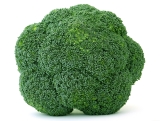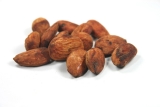
Many people think that in order to stay healthy, you have to take an abundance of vitamins and supplements.
However, all you really have to do is eat a nutritionally balanced diet that consists of foods containing all the necessary vitamins and minerals, such as calcium, potassium, magnesium and zinc.
The Role of Calcium
The most abundant mineral in your body is calcium, which has many different functions that it must carry out in order to keep you healthy.
As much as ninety-nine percent of the total calcium in the body is stored in your teeth and bones. The rest is al throughout your body in your muscles, in your blood and in the fluid in between the cells.
Your body needs calcium in order to perform several bodily functions, such as the contraction and expansion of blood vessels, muscle contractions, the secretion of enzymes and properly sending messages to and from the central nervous system.
In order to ensure that all of the important bodily processes are functioning efficiently, a consistent level of calcium is maintained in the tissues and fluids of the body.
Foods Containing High Levels of Calcium

Foods containing high amounts of calcium include all types of dairy produce, especially yogurt, milk and cheese. Also consider the following foods:
- Blackcurrant
- Bread
- Broccoli
- Cabbage
- Dried fruits
- Herring
- Kippers
- Oatmeal
- Peanuts
- Radishes
- Sardines
- Soya
- Spinach
- Tinned salmon
- Treacle
Foods Containing High Levels of Potassium

The most efficient way to get all the potassium that you need in your regular balanced diet is not through a bunch of vitamins and supplements.
Eating a wide variety of foods containing potassium is the best way to get the amount that your body needs to function properly. Among many other benefits, potassium is thought to reduce risks of hypertension.
- Apples
- Apricots
- Bananas
- Brown rice
- Cantaloupe
- Kiwi
- Oranges
- Peaches
- Spinach
- Wheat bread
- Yogurt, milk
Foods Containing High Levels of Magnesium

Magnesium is a mineral that is essential for proper nutrition. In the body, magnesium has many different critical functions to perform. Magnesium works to produce and transport energy throughout the body.
In addition, it is also needed for proper relaxation and contraction of the muscles. It is necessary for proper protein synthesis and it aids in the functions of particular enzymes al throughout the body.
Recent studies conducted by the United States Department of Agriculture determined that women age nineteen to fifty on average only consume around seventy-four percent of the recommended daily allowance.
Men age nineteen to fifty typically consume as much as ninety-four percent of the recommended daily requirements for magnesium. Overall, fifty percent of the women who participated in the survey had an average intake of less than seventy percent of the recommended amount.
Spinach and other green vegetables are excellent sources of magnesium due to the chlorophyll molecule, which provides vegetables with that beautiful green color.
- Beans
- Nuts
- Peas
- Seeds
- Unrefined grains
Foods Containing High Amounts of Zinc

One of the most important minerals in the human body is zinc because it can be found in nearly every single cell.
Zinc is needed by the body so it can properly perform several different functions, even though only a small amount is used each time to perform each job.
Zinc has a very important job when it comes to enzymes, which are proteins that initiate critical chemical reactions throughout the body. It is needed to ensure proper sexual maturation as well as proper growth.
- Almonds
- Bananas
- Cauliflower
- Eggs
- Fish
- Lima beans
- Liver
- Milk




Be the first to comment